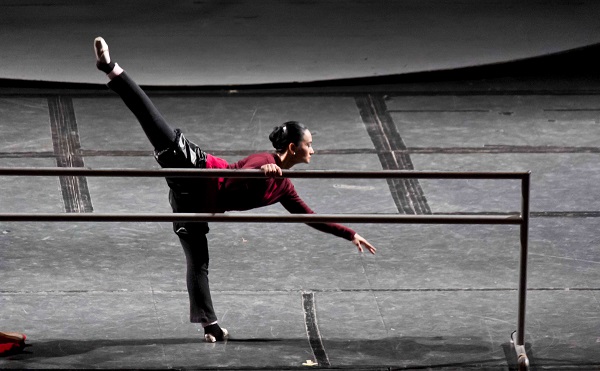Lisa Macuja–Life after the ‘pointes’
Lisa Macuja-Elizalde’s name is synonymous with ballet. Her career as a dancer is the longest in the country, having been on her toes for 29 years.
She has reached the status of prima ballerina via the quality of her performances here and abroad.
Not too many ballerinas reach the age of 49 still dancing, as many opt to stop after marriage or after giving birth. Lisa has two children—a girl, Missy who, at 16, is already making waves as a dancer and Manuel, 13.
Ballet is a very physical endeavor and not meant for maturing individuals—the toll on its body is much like that of athletes (plus more).
Knowing this, Lisa prepared herself for her last curtain call in dancing by going into the more difficult side of the industry—the production side.

LISA Macuja Elizalde, Cecile Licad and Lea Salonga will combine song, music and dance anew in “The Legends and The Classics Encore.”
Lisa is involved in the Legends and the Classics, which stars piano virtuoso Cecile Licad and international and multi-awarded singer Lea Salonga in a concert today, Sunday, at 5 p.m. at the Cultural Center of the Philippines.
Lisa also has her hands full with La Bayadere on Nov. 15 and 16 at 7:30 p.m.; Nov. 17, 1 p.m. and 5 p.m. at the Aliw Theater.
Then there’s the Nutcracker on Nov. 30, Dec. 1, 7, and 8 at 11 a.m. and 3 p.m. at the Aliw Theater.
Here’s an e-mail interview between Lisa and SundayBiz:
Q: Why did you decide to pursue a business administration degree (after your previous course)? Did you already know you were going to expand into production after being a prima ballerina?
A: I decided to pursue a management degree when I was pregnant with my second baby. I wanted to finally get a college degree and I figured that a management degree would really help me in my administrative duties as artistic director and chief-of-staff of Ballet Manila—the company I founded in 1995. I was already managing the company with the guidance of a lot of people but I wanted the formal degree and education. I did promise my parents a long time ago when I went off to Russia right after graduating from high school that I would eventually get my college education.
Q: What were the challenges you encountered in taking the course, how long did it take you, why in University of Phoenix?
A: I first took a two-year course and got an Associate in Arts Degree from the University of Phoenix Online and then I decided to go for the BS in Management degree after that. It took me about six years total. I needed to complete 120 units with every five week class the equivalent of three units. This worked for me because the University of Phoenix Online was really structured to cater to the adults who had jobs and families and were studying online. In all our assignments and papers, we had to relate to our current job. It was difficult, but a lot of learning and I made a lot of friends from all over the world.
Q: Did you get inspiration from anyone—going into production after being an artist for years? Would you know of other artists who went into this path? Would you recommend this to other artists?
A: I’ve always been inspired by my parents, my siblings and my mentors. I was already a “miss-all-around” when we founded Ballet Manila—dancing, coaching, doing music editing, writing sponsorship letters, doing communications, marketing and even purchasing equipment… But I think I was only able to study and get my degree when I had the time and means to do so. I think many artists expand their horizons by going into other jobs other than practicing their art and I believe that, as long as it makes you happy and fulfilled, then you can do this. I have to admit that the easiest part of the job—and definitely the most pleasurable—is still the dancing.
Q: How difficult is it to be both the artist and the producer? Do you like it this way? What traits must you need to be able to do both?
When you are both artist and producer, you need capable, efficient, friendly and reliable staff that you can delegate a lot of the work to, especially when production crunch week sets in. You need to be organized, have people skills, have the energy and be able to set your priorities and focus on the immediate needs. I am again fortunate to have a very good staff that does most of the legwork for me so I can focus on my own dancing. Yes, I worry about ticket sales and sponsorships and the bottomline, but I am again fortunate that I can also treat my productions as performances that are gifts that give me beautiful memories. I don’t really need to focus on the profit. I love the product too much.

CECILE Licad, Lisa Macuja Elizalde and Lea Salonga with their kids, Ottavio Meneses, Manuel Elizalde, Missy Macuja Elizalde and Nicole Chien, after “The Legends and The Classics.”
Q: Money will always be an issue in productions especially when you’re dealing with big names—who decides how much to pay who?
Well, in this case, the artists gave us quotes of their fees and I guess it was my job to decide whether these quotes were reasonable or not. Our production costs are definitely very high because of artists’ fees. But, as an artist, I want to pay artists well. I think that it is just fair.
Q: For your first debut into a new arena you are immediately dealing with big names – how do you balance egos?
Again, I have very capable people that I rely on for a lot of this work. These are the unsung heroes—our production team, directors, technical team, marketing team, my executive assistant, my Ballet Manila team but we treat everyone with mutual respect, try as much as possible to please our talents even with special requests and trust our director to give us enough exposure time. Already, I have acquiesced to Cecile Licad’s request to have a full day by herself to rehearse with the orchestra. Unlike Lea and myself, Cecile is not used to having just one or two rehearsals with the orchestra before the performance. So, I guess you could say we take everything on a case-to-case basis. I am also fortunate that none of the ladies I work with are divas. We are all committed to the performance and come fully prepared to rehearsals and the performances.
Q: It’s a fact that having your husband’s enterprise helps in your performances and other undertakings plus helps talented dancers who have no financial capability, what do you think should the government do in this area?
A: I would love to say that I think the government should support the arts more by allotting a bit of their annual budget to helping put up artistic performances or training/education—but then I would just sound like I am whining. You know, even if these government officials come to watch our performances, pay for their tickets and enjoy the performance with us—I think that already translates into support.















